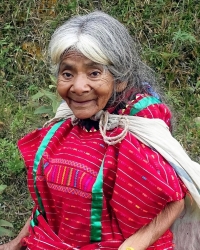Triqui, Copala in Mexico

Photo Source:
Copyrighted © 2026
Kerry Olson All rights reserved. Used with permission |
Send Joshua Project a map of this people group.
|
| People Name: | Triqui, Copala |
| Country: | Mexico |
| 10/40 Window: | No |
| Population: | 41,000 |
| World Population: | 50,000 |
| Primary Language: | Triqui, Copala |
| Primary Religion: | Christianity |
| Christian Adherents: | 95.00 % |
| Evangelicals: | 2.00 % |
| Scripture: | New Testament |
| Ministry Resources: | Yes |
| Jesus Film: | Yes |
| Audio Recordings: | Yes |
| People Cluster: | Mixteco |
| Affinity Bloc: | Latin-Caribbean Americans |
| Progress Level: |
|
Introduction / History
The Triqui are a cluster of Mexican tribes, one of which is the Copalas. Their traditional homeland is in Oaxaca, in southern Mexico. Most have moved north to either Baja California or to the United States to avoid wanton killings by drug cartels.
What Are Their Lives Like?
Some of the Copala Triqui work on farms for nine-hour shifts, earning six dollars a day. Those who have relocated to Baja California were not welcome for two reasons. They didn t speak Spanish, and they have a reputation for violence. Many of the perpetrators of violence come from one of the Triqui subgroups.
What Are Their Beliefs?
The Copala Triqui are officially almost entirely Christian. Yet the teachings of the Bible have not affected the younger generation.
What Are Their Needs?
Triqui youths lack the opportunity to make a decent living or to get a good education. Instead, their opportunities involve illegal and destructive drugs. People don t venture out at night because of drug-using criminals. The Triquis need safety and a way to earn an honest living.
Prayer Points
Pray for a massive move of the Holy Spirit that will show the world what God can do with a people who turn from violence to dedication to Christ.
Pray for the Lord to come to the aid of the Copala Triqui people and save them from violence and destruction.
Pray for Copala Triqui disciples who will make more disciples.
Pray for hope to reign in their communities, a hope based on the resurrected savior.